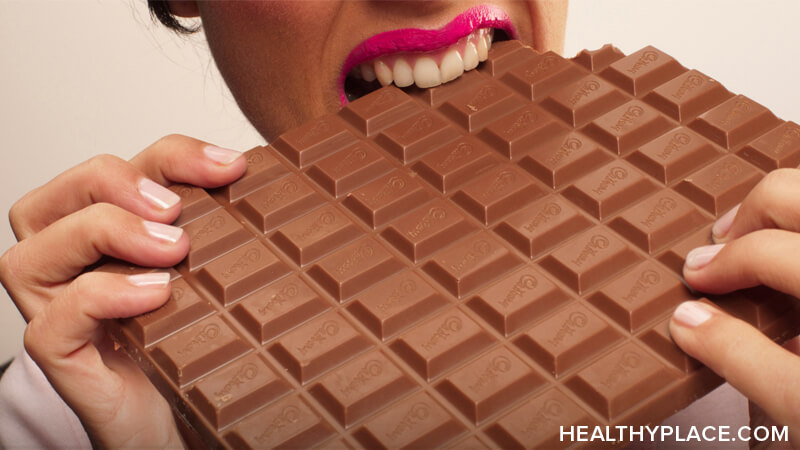What Causes Food Cravings (Food Addiction)?

Discover the psychological and physical causes of food cravings and food addiction.
Addiction to food and food cravings may have something to do with your brain chemistry. People with food cravings may actually have neurochemical and hormonal imbalances that trigger these cravings.
Causes of Carbohydrate Cravings
Low serotonin levels (a hormone responsible for feelings of pleasure and relaxation) may lead to carbohydrate cravings. Since carbohydrates supply the body with tryptophan, this helps to increase serotonin levels.
If you think you may be serotonin-deficient and want to increase your serotonin levels without resorting to a pint of ice cream, James Braly, MD, medical director of York Nutritional Laboratories and author of Food Allergy Relief, suggests trying these alternatives:
- Identify and eliminate suspected food allergens -- paying special attention to gluten (wheat, rye, oats, etc.) and milk products.
- Avoid alcohol.
- Avoid stimulants like caffeinated drinks, cigarettes, and amphetamines.
- Increase your exposure to bright light or sunlight to 1-2 hours a day.
- Get 60 minutes of moderate or moderately intense exercise every day.
- Make sure you get enough deep, restful sleep every night.
Read more about: How to Stop Food Cravings
Other Psychological and Physical Causes of Food Cravings
Dieting. When you ban certain foods from your diet, you are going to crave the very foods you are trying to avoid and may end up bingeing on those foods.
Eating out of habit. Some food cravings exist due to habit. For instance, your family may have eaten dessert every night after dinner while you were growing up. Now, if a dessert doesn't appear every night after dinner, you crave something sweet.
Psychological association. Or maybe the food cravings are all in your head. The mind is a very powerful tool, and mental associations can often trigger a person to crave foods. Passing a bakery on your way home may elicit a craving for donuts, or a billboard ad for McDonald's may trigger a craving for french fries. Certain activities are also linked to food cravings. Watching movies, for example, is heavily associated with eating popcorn and candy, so just the mention of a movie can drum up a craving for junk food.
Comfort foods. Emotions can also lurk at the root of craving foods, especially if you consider certain foods "comfort" foods. If you continually reach for chocolate ice cream every time you're stressed out or upset, you may begin to associate the taste of chocolate ice cream with feeling better.
Dr. Roger Gould, a psychiatrist and the creator of MasteringFood, an online weight loss program that explores the reasons why people have not been able to lose weight successfully, says there are 3 major reasons why food addictions persist:
1. You eat because you're afraid of your feelings.
2. You use food to reward yourself when you're frustrated or unfulfilled.
3. You eat because it helps you assert your independence, to feel safe, or to fill emptiness.
Sources:
- James Braly, MD, medical director of York Nutritional Laboratories
- Roger Gould, MD, psychaitrist and creator of the MASTERINGFood program
- Rader Programs (for eating disorders treatment)
APA Reference
Gluck, S.
(2021, December 15). What Causes Food Cravings (Food Addiction)?, HealthyPlace. Retrieved
on 2024, June 20 from https://www.healthyplace.com/addictions/food-addiction/causes-food-cravings-food-addiction


